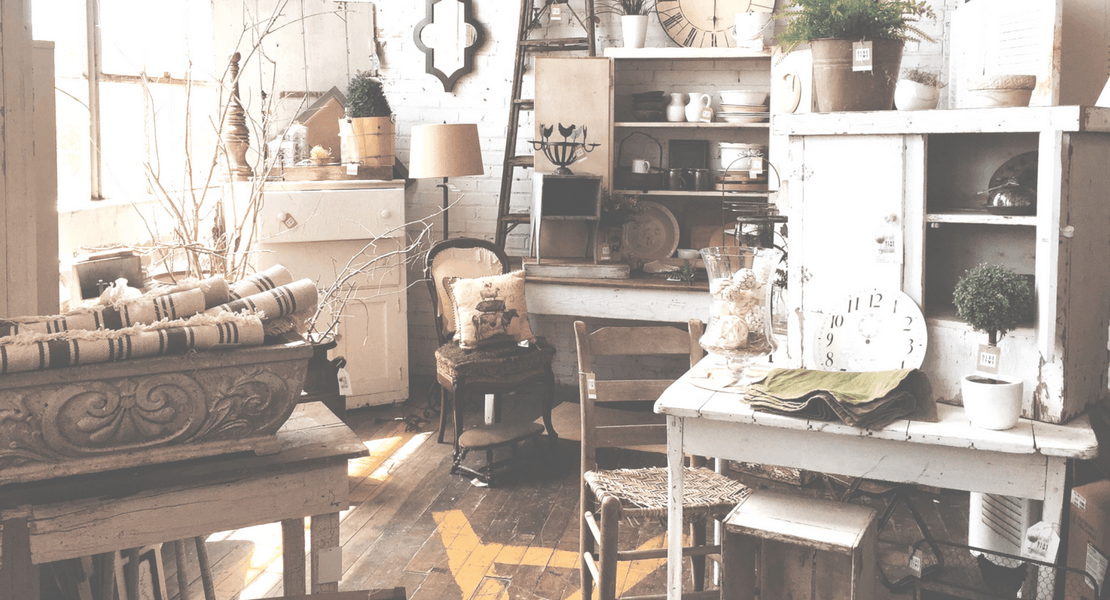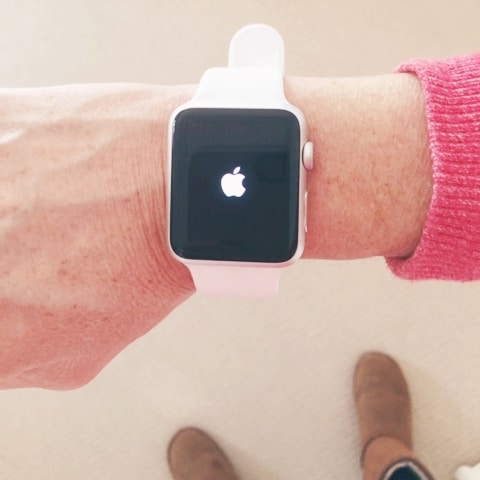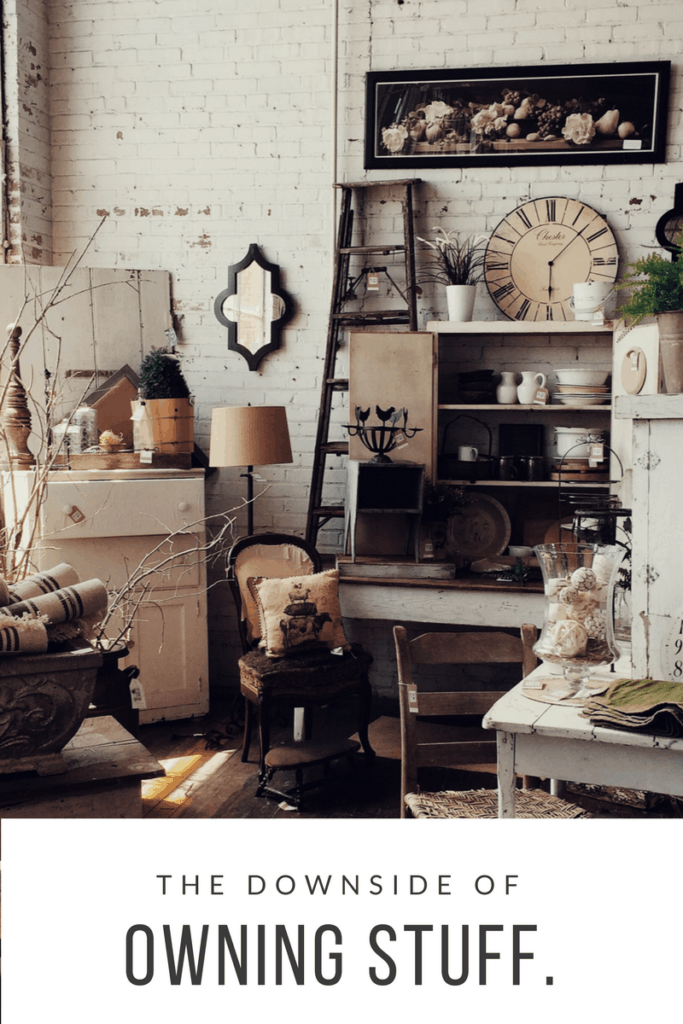Head's up, there could be affiliate links ahead!
Lately I’ve been trying to unload “stuff” I don’t use. Most of it has gone to Goodwill, but there are other things that I find too valuable to donate yet selling them is harder than I expected.
I have an apple watch that my husband bought me for Christmas a few years back. I have rarely worn the thing and to be honest, I don’t get much value out of it. I am constantly staring at my phone or computer (sad, but true), so I always know what time it is. As for the other features – meh… not really interested in them.
So I put the watch on ebay and see what happens. **Insert cricket sound.** I guess I’ve overpriced it at $170, but like most things, we always overvalue what we own. It’s a psychological phenomenon called the endowment effect.
So given that it wasn’t selling, I decided to try Facebook Marketplace. BIG mistake. I’m not sure where Facebook is going with that platform, but I ended up getting some emails from pretty sketchy characters offering low ball figures who failed to follow up if I agreed to their price. I decided to pull the watch from FB because I didn’t really want to hand deliver anything to these people. I’m not sure if you guys have had much success with Marketplace, but I think it’s a waste of time.
When it comes down to it, selling your “stuff” can be more trouble than it’s worth. My experience trying to sell this watch has really shown me how owning things we don’t use can be cumbersome. I have to keep the damn thing charged in case I do want to use it and I have to keep all the packaging in case I do actually end up selling it.
It’s a pain in the ass.
Sure, it’s not a big pain in the ass, just a minor pinch, really, but when you think of it, I have so many little pinches in the ass with all this stuff I own, that it all adds up. No wonder we’re all suffering from so much anxiety and depression these days. We have so many little, minor stresses that snowball into larger sources of anxiety that we can’t quite put our finger on the single cause anymore.
Whoa! There’s an interesting revelation.
So there’s not much I can do about the stuff I’ve already acquired other than continue to use it, donate it, or accept that its value is much less than I place on it and therefore sell it at any price I can get. But the greater lesson here is that once I acquire something, it becomes not just my possession, but also my burden. My burden to care for it, get it fixed if it’s broken and ensure it’s got what it needs to run as it should (my watch requires energy and wifi to power it).
The same thing goes with cars, homes, boats, jewelry, expensive clothes, art, technology and all the other stuff we accumulate. It requires space to store it, experts to maintain and repair it, often insurance to cover the cost of replacement and whatever else is required to keep the stuff useable. I learned first hand how much of a drag this can be when we owned a lake home in Southern California. If we weren’t buying stuff to fill our home, we were paying someone to fix it, paint it or (gently) remove critters from it. And then we had to spend as much time as we could there, just to justify the cost of maintaining it, which was stressful in itself.
Eventually, we took a loss on the home when we sold it (after we had a break in which is another story), but it was a relief to get rid of it. I’ve vowed never to own a second home again. With all the options to rent homes through Airbnb and VRBO, I see no reason to assume the burden of vacation home ownership again.
This perspective has really enlightened me to the purchasing decisions I make, largely on autopilot. There’s such a striking similarity to buying and eating habits. We consume mindlessly because we want what we want, but when the consequences show up in the form of stuff or fat, we wonder how we ended up where we are. When we try to cut back, we experience a visceral sense of deprivation that keeps us wanting to go back to our consumptive habits. Because we deserve to consume. We work hard to have that privilege.
But instead of looking at less consumption as a deprivation, I see it now as freedom. Freedom from the weight of carrying everything I consume. It feels lighter, calmer and much less stressful to consume less. Less stuff and less feeling of “stuffed”.
So the big “ah ha” for me here is to focus on saying “yes to less” rather than saying “no to more”. It feels less like deprivation and more like freedom from burden and anxiety.
What are your thoughts on consumption? Do you think you could be more mindful of what you acquire?






Troy @ Market History says
I recently got the Apple watch as well, and I’m loving it! I like to go on random runs outside without a route in mind. I kind of just keep running and exploring new areas. The GPS keeps track of my distance. I also use it for surfing, which is pretty cool.
Yo thats me says
Hey Troy, I’m glad you are getting so much value from it!! I have the first edition, so no GPS unfortunately. Overall, I can see how you could get value from gadgets, especially if they motivate you to run. It just didn’t provide that value for me 🙂
Thanks for commenting. Great to e-meet you!
Troy @ Market History says
Yea I thought about buying the first edition when it came out, but could never really justify it. I don’t see the point in carrying an extra gadget (apple watch) if you need to have the phone with you. In that case, I’ll only carry my phone with me!
Four Pillar Freedom says
This past year I have really focused on reducing how much “stuff” I allow myself to be surrounded with. I find that the more I own, the more time I have to spend cleaning, spending money on repairs and upkeep, and just generally spending TIME taking care of all my stuff – time I would much rather use elsewhere.
I think we could all benefit from “saying yes to less”. Awesome article 🙂
caren says
Thanks Four Pillars! I agree. And as I go through my purging process to become more intentionally minimal, I’m becoming increasingly aware of how much I waste on accumulation. Then I listened to the Minimalist podcast on Clutter today and it was like salt in a wound. Ugh…. live and learn 🙂 Nice to meet you!
Bill @ Wealth Well Done says
I dig the article. You are so right. Stuff is time-consuming, money-consuming, and energy-consuming. All three of these things consume our ability to create wealth! The less stuff we have consuming our wealth, the more opportunities we will have to create wealth! But I will admit that I am not a true minimalist. I do enjoy collecting nice things that I use on a regular basis. For example, I have nice guitars and bikes, but they do enhance the quality of my life. If you can minimize your stuff to the things that enhance the quality of your life, rather than detract from your life, you will be on you way to wealth.
caren says
Hey Bill,
I am so with you on this! I agree that some stuff can really enhance the quality of your life. I feel the same way about hair products and Lululemon yoga pants! 🙂 The key is to know what adds value to your life and what just takes up space. This requires some forethought and self-awareness. Something that is strikingly lacking in our consumptive culture.
Sundeep says
Omg, I’m 100% with you on trying to sell things of some value. I was giving most of my stuff away but was left with things of little value and ran into the same issues as you and wonder if it’s even worth the effort instead of just giving the stuff away as well.
I’m still wondering just like you and the watch, haha.
Great insight on the million little pinches becoming on big ambiguous source of anxiety which just makes you more anxious.
caren says
thanks for the comment, Sundeep! funny thing is that I did end up selling the watch on ebay! It sold quite randomly on the weekend. YAY!! I’m so glad to have recouped some cost on that. It was a gift, but given that it was paid for from our joint accounts, it’s kinda nice to get something back for it. My husband wishes he could sell his, but it’s not working well enough to even try.
Full Time Finance says
I like the post. I’m also in wholesale agreement with the points abou selling things being a burden. I prefer to donate excess stuff partially because it makes me feel good, but also partially cause it avoids all the Craig’s list scammers of the world. It’s sub optimal financially though, which again is a reminder that maybe buying in the first place was a bad idea.
caren says
After many potential buyers flaking out on me, I have to agree that just donating stuff is way better than selling. But I have to admit… it hurts a little. So much $$ wasted, but such a good lesson.
nutsong says
Starting a reply to a minimalist article with “we just purchased a newer home six months ago” feels strange, but it is where I start. The process of selling our last home was at times stressful, but we approached it as an opportunity to remove things that were weighing us down. Nothing was moved to the new home unless we used it and loved the quality (with a few minor exceptions). There were so many trips to donate and recycle, and the chance to enrich the lives of friends with freebies. We no longer needed all the random items either handed down to us, or purchased because it was what we could afford at the time. We have a new system of not keeping everything, and maintaining our storage areas like they are our living spaces. Less does feel like more, but I am still affected my the urge to consume. I focus on thoughtfully planning purchases for the new home, focusing on the added quality to our lives as someone else noted. I am confident that this newer home almost fills finished for our needs. Well, perhaps time to focus on the gardening now, an area of constant maintenance!
caren says
I hear you!! The urge to splurge is still there for me too. We’ve been in our home for about a year now, and there’s still a lot that needs to be done. But for me, having a home that reflects who I am and has the comforts I desire is important to my happiness, so I’m okay with the choices I’m making to upgrade a bathroom or redo the floors.
I don’t see minimalism has a measure of austerity. It’s a practice of being thoughtful about what you bring into your life, and it sounds like you’re doing a great job of that.
Using storage space as living space – this. is. brilliant.
Nice to meet you!